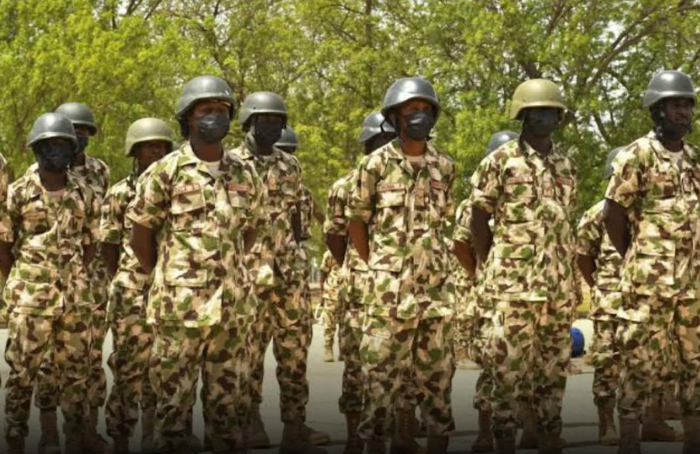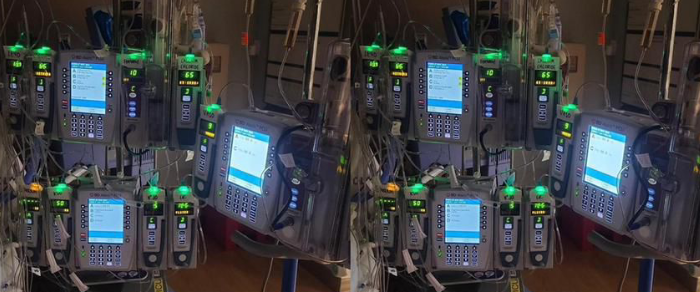
Shocking Nightfall Raid: ISWAP Ambushes Military Convoy, Reportedly Abducts Nigerian General in Borno

Nigeria was thrown into renewed shock and anxiety on Friday night after reports emerged that fighters of the Islamic State West Africa Province (ISWAP) carried out a deadly ambush on a Nigerian Army convoy in Borno State, allegedly abducting a serving general and killing several troops. The incident, first reported by HumAngle, has intensified national fears about the increasing boldness of insurgent factions operating in the region and the deepening complexity of the war against terrorism in the Northeast.
According to the report, the ambush occurred as a convoy of soldiers, alongside members of the Civilian Joint Task Force (CJTF), was moving through one of the volatile routes in Borno, a state that has suffered relentless attacks for more than a decade. The abducted officer, described as a brigade commander who was leading the mission, was reportedly taken alive by the insurgents after the convoy came under heavy fire. Multiple soldiers and CJTF operatives were said to have been killed on the spot as the attackers overwhelmed the troops with superior positioning and firepower.
If confirmed, this incident would mark the first known case of a serving Nigerian general being captured alive by an extremist group directly from the battlefield. While high-ranking officers have previously fallen to insurgent attacks, actual abduction at the frontline represents a disturbing new dimension in the conflict. Analysts say such a development could embolden insurgents, dampen troop morale, and raise questions about operational security, intelligence failures, and the evolving tactics of terrorist groups in the region.
Eyewitness accounts cited in the report described the ambush as swift, coordinated, and ruthless — a hallmark of ISWAP’s increasingly sophisticated military operations. The attackers reportedly blocked the route, forcing the convoy into a deadly trap before opening fire. The chaos that followed left several soldiers incapacitated, while others attempted to fight through the assault under difficult terrain and communication challenges.
The Nigerian Army has not issued an official statement regarding the incident, and attempts to reach the spokesperson, Lt. Col. Onyechi Anele, have reportedly gone unanswered. As a result, key details — including the exact number of casualties, the identity of the abducted officer, and the operational circumstances — remain unclear. Security sources say the military is currently assessing the situation, and internal briefings are ongoing as efforts to verify the report and possibly locate the abducted general intensify.
However, the lack of an immediate response from the military has fueled speculation among the public, with many Nigerians expressing concern on social media about the implications of such a high-profile abduction. Some fear it could signal a resurgence of ISWAP’s capabilities, just months after the military announced significant gains in its counterterrorism operations. Others view the silence as a strategy by authorities to manage public panic, especially given the sensitivity of the matter.
Security experts observing the region warn that the abduction of a senior military officer would represent a propaganda victory for ISWAP. The group, which has long sought to differentiate itself from Boko Haram through more targeted and strategic attacks, has expanded its focus on military formations, bases, and movement routes. Capturing a general, even temporarily, would bolster its image among extremist networks and potentially attract more recruits seeking to align with what they perceive as a strong and tactically advanced faction.
This development also brings renewed attention to the persistent challenges the Nigerian military faces in Borno and other Northeastern states. Despite ongoing offensives and the reported weakening of insurgent strongholds, the terrain — consisting of dense forests, remote villages, and difficult-to-secure highways — continues to offer extremist groups room to maneuver. Soldiers often operate in harsh conditions, navigating unpredictable threats ranging from improvised explosive devices (IEDs) to coordinated ambushes in areas where communication signals are weak and reinforcements may take time to arrive.
For many families of soldiers deployed in these dangerous zones, Friday’s report has heightened anxiety. In military barracks across the region, the atmosphere is said to be tense as personnel await official clarity regarding the fate of their colleagues. The morale of troops, already tested by years of grueling combat, could face further strain if the abduction is confirmed, especially given the symbolic weight of a general being seized by insurgents.
The Civilian Joint Task Force, whose members were also reportedly killed in the attack, has long served as a crucial support system for the military. Made up of local volunteers who know the terrain better than most soldiers, the CJTF has helped intercept attacks, identify insurgent hideouts, and gather intelligence. Their continued losses highlight the human cost paid by communities who have taken up arms to defend themselves against extremist violence.
As the nation awaits an official response, questions continue to mount: How did insurgents manage to outmaneuver a high-ranking officer’s convoy? Was there a breach of intelligence or an internal compromise? What does this mean for the safety of other military personnel operating in the region? And perhaps most pressing, what steps will the government take to ensure the safe rescue of the abducted general, if he is indeed still alive?
The incident also underscores the urgent need for improved military logistics and stronger inter-agency collaboration. Experts argue that Nigeria must enhance real-time intelligence gathering, deploy better surveillance technology, and strengthen rapid response mechanisms to counter the evolving tactics of insurgent groups. Some have called for renewed cooperation with regional forces under the Multinational Joint Task Force (MNJTF), especially in border areas where ISWAP cells move with relative ease.
As night turned to morning on Saturday, the silence from military authorities remained intact, leaving room for both hope and dread. Citizens continue to monitor updates, praying the report turns out to be inaccurate — or that swift action ensures the officer’s safe return. For now, the alleged ambush stands as a grim reminder that despite years of counterterrorism efforts, the fight against insurgency in Nigeria remains far from over.


